NameAPI News
Dictionary Update: Danish Names

NameAPI has expanded its Nordic coverage with 2,600 given names and 8,600 family names, capturing how people in Denmark and Danish communities abroad really name themselves today.
Danish names weave together Old Norse roots, Christian and royal traditions, and modern global influences, with classic names like Søren and Astrid, biblical and noble names like Christian and Margrethe, and newer international choices like Oliver or Alma adapted to Danish language and style. Surnames ending in -sen (Jensen, Nielsen, Hansen) still dominate and preserve the echo of the old “son of” patronymic system.
Our graph database stores relations between different versions of a name. This allows NameAPI to link Danish names appearing in different forms, catching variations that simple string matching would miss.
With these enhancements, NameAPI delivers:
- Parsing of traditional and modern name forms such as "Vibeke Diderichsen" or "Mogens Nørgård".
- Gender recognition for names like "Grethe Frands" (female) and "Aksel Kronback" (male).
- Matching that understands nicknames and short forms, such as "Bjorny Sorensen" with "Bjørn Sørensen”.
Verification of Payee (VoP) with NameMatcher

NameAPI is introducing Verification of Payee (VoP) powered by NameMatcher, enabling fast, accurate account-name verification for banks and payment providers.
What VoP does
VoP confirms that the account name matches the IBAN before a payment is sent, returning clear signals (match / close match / no match) so payers can correct details or stop risky transfers.
As instant payments become widely available across Europe, financial institutions are standardizing pre-payment name checks to reduce misdirection and impersonation fraud while maintaining real-time speed.
Why NameMatcher
The NameMatcher improves the VoP experience by recognizing real-world name variations, reducing unnecessary confirmations and keeping the payment experience smooth.
» Specialized in names
NameMatcher is designed from the ground up to understand names in all their complexity—across cultures, languages, and formats.
» Researching names since 2007
Our long-term commitment to name research has built one of the most comprehensive global name databases in the industry.
» Expert team of linguists and native contributors
They maintain our datasets, add new names and name-related terms, and quality-check data across regions.
» Global coverage
We continuously expand our global name database—adding new names, variants, and relationships across languages, regions, and scripts.
» Real-world name variations
It handles nicknames, abbreviations, transliterations, diacritics, swapped names and more.
» High-performance solution
NameMatcher delivers precise record comparisons with high efficiency. It is built to handle large-scale, high-volume workloads.
Bring reliable name matching to your stack
Adopt NameMatcher directly in your banking stack or via a payments platform/operator that runs the VoP service.
Looking beyond VoP? Get NameMatcher for operations, KYC/KYB, fraud, and data quality. Contact us.
Software Version 11.0.0 Deployed

Release of Optimaize PII Platform with Java 21.
We are pleased to announce the deployment of NameAPI Software Version 11.0.0, now running with Java 21.
Staying up to date allows us to continue delivering reliable, future-ready technology to our customers.
Functionalities in this version
- Update Project to Java 21
Upgrading from Java 17 to Java 21 involves migrating the application source code, dependencies, and build tools to the latest Java Long-Term Support (LTS) platform.
This transition ensures compatibility with the most recent language features and security updates, while improving runtime performance and overall maintainability.
The goal of this migration is to leverage the advancements introduced in Java 21 for enhanced stability, efficiency, and forward compatibility across all NameAPI components. - Expanded Multicultural Name Database
The internal database of names has been extended to include a broader range of cultural and linguistic variations.
This enhancement allows for more accurate parsing, normalization, and matching of names originating from diverse regions around the world, strengthening the global applicability of the NameAPI services. - NameMatcher Improvements
The NameMatcher module has been enhanced with optimized algorithms for name comparison and similarity scoring.
These improvements result in higher precision and consistency when evaluating personal names across multiple cultural and linguistic contexts, providing users with more reliable and interpretable matching outcomes.
API Endpoints
The API endpoints are the following:
Global by Design
Built to recognize and understand names worldwide, NameAPI continuously evolves to meet the demands of an increasingly connected world.
Ongoing updates ensure the platform remains robust, secure, and aligned with the growing diversity of real-world data.
Dictionary Update: Quechua and Aymara Names
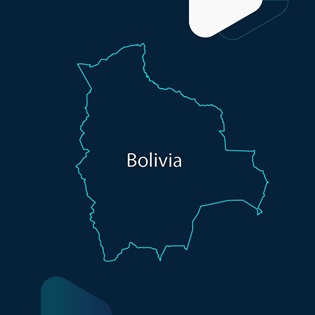
The NameAPI database continues to grow, now enriched with 3,700 new given names and 600 family names from the Quechua and Aymara languages of the Andean region.
These Indigenous languages, spoken across Bolivia, Peru, Ecuador, Chile, and Argentina, represent some of the oldest and most culturally rich naming traditions in the world. By expanding our linguistic coverage, NameAPI continues its mission to deliver a truly global name processing solution.
Why it matters
Names are identity. By recognizing and correctly interpreting Aymara and Quechua names, NameAPI enables accurate data handling across multilingual applications, including financial services, insurance platforms, and large-scale data processing systems.
Cultural context
Quechua and Aymara peoples have shaped the history of the Andes for centuries. Today, more than 13 million Quechua speakers and 1.7 million Aymara speakers continue to preserve their languages and heritage. Bolivia even recognizes both as official national languages, a testament to their living importance.
Improved detection and classification
Our latest updates enable:
- Parsing of traditional and modern name forms such as "Warayana Acarapi" or "Chuki Huayna"
- Gender recognition for names like "Achanqara Catunta" (female) and "Mallku Yupanqui" (male)
- Matching that understands nicknames and short forms, such as "Pilli Poma" with "Pillku Poma"
Another step toward understanding every name, everywhere.
Database Expansion: Brazilian Portuguese Names
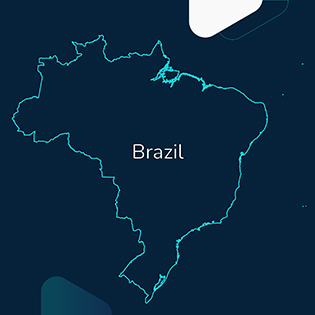
We’ve expanded our database to include a comprehensive set of Brazilian Portuguese names. This update introduces 6,400 given names and 1,050 family names.
Brazilian Portuguese Language and Cultural Context
Portuguese is the official language of Brazil and is spoken by over 200 million people in the country, as well as by millions more in Brazilian communities around the world. Brazilian Portuguese has evolved distinctly from European Portuguese, shaped by influences from indigenous languages, African languages introduced during the colonial period, and immigrant languages such as Italian, German, and Japanese. These diverse cultural influences are reflected in Brazil’s rich naming traditions.
Brazilian Naming Conventions
A Brazilian name typically consists of one or two given names followed by multiple family names — rarely just one, but often two or three, and sometimes even more. Surnames usually appear in the order of the mother's surname(s) followed by the father's. In some cases, especially among married women, a person might have an extensive name that includes two given names and up to six surnames: two inherited from the mother, two from the father, and two from the husband. Additionally, some surnames are compound or multi-word, which means a full feminine name can occasionally span more than twelve words.
Brazilian given names are often rooted in religious and traditional influences. Many are derived from Biblical figures — such as José (Joseph) or saints’ names like Roque (Roch). Compound given names (nomes compostos) are also common, especially in historical contexts, including examples like Maria das Dores..
The given name Maria is extremely common as a feminine name and is also frequently combined with masculine names. It has long been popular, especially as the first element in double given names for women — such as Maria Gabriela, Maria Beatriz, or Maria Eduarda. For men, Maria often appears as the second given name in combinations like João Maria", José Maria, or Manuel Maria. This naming tradition was especially fashionable among the Portuguese nobility and upper classes.
Examples of Brazilian Portuguese Name Handling
With the latest updates, our software can now analyze, match, and identify the gender of the following instances, as shown below:
- The Name Parser can now analyze names like "Raimunda Moreno", where Raimunda is the given name and Moreno is the family name, and "Tiago Castro", where Tiago is the given name and Castro is the family name.
- The Name Genderizer can now identify names such as "Cleonice Mendes" (female) and Vicente Sousa (male).
- The Name Matcher can now identify a match between "Rodrigo Branco" and "Rodriguinho Branco", where Rodriguinho is the diminutive form of Rodrigo.
Secondary Domain Added: api.name-api.com for Enhanced Redundancy
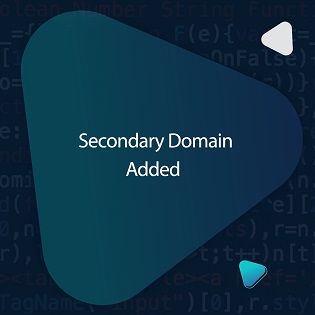
To further strengthen NameAPI’s reliability and provide uninterrupted service access, we are happy to announce that we have introduced a secondary domain, api.name-api.com, alongside our primary api.nameapi.org.
Both domains now operate with independent DNS servers, separate registrars and SSL certificates, greatly reducing the risk of single-point failures.
We recommend clients to adopt both domain URLs in their integrations for improved reliability and failover protection: api.nameapi.org and api.name-api.com.
Version 10.8.0 Released
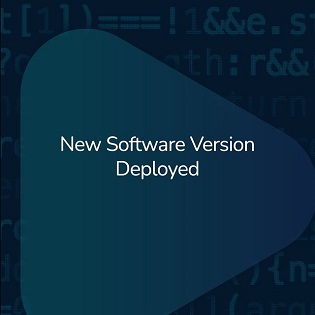
Release of Optimaize PII Platform, version 10.8.0.
This update brings several improvements related to name matching consistency, stronger security, and broader data coverage.
1. NameMatcher Service Improvements
We have improved the name parsing and matching, specifically in scenarios where names are passed as separate fields versus a single full name string. Previously, these inputs were processed slightly differently, leading to inconsistent results in edge cases with lower confidence scores. With this release, matching logic has been unified, delivering consistent and accurate outputs across all input formats.
2. Security Enhancements
To strengthen our infrastructure and minimize potential vulnerabilities:
- Base Docker image upgraded:
from amazoncorretto:17-alpine -> amazoncorretto:17.0.16-alpine.
- Key libraries updated to address known vulnerabilities (partial list):
- jackson-core, jackson-databind
- maven-core
- jsoup
- logback-classic
- guava
3. Improved Domain Classification
Our system now recognizes and classifies 800 additional domain names, assigning them to categories such as:
- Disposable
- Organization
- Freemail
...and others.
4. Expanded Name Database
Our team has researched and added new given names and surnames from a diverse range of cultures:
- Brazilian Portuguese
- Greek
- Kirgiz
- Urdu.
API Endpoint
The endpoint remains unchanged: https://api.nameapi.org/rest/v5.3/
Built for a Global World
Whether you are working with names from Europe, Asia, the Americas, or beyond, NameAPI is built to support global diversity. Our ongoing updates ensure the platform evolves with your needs, supporting more names, improving accuracy, and strengthening security with every release.
Dictionary Update: Korean Names Added
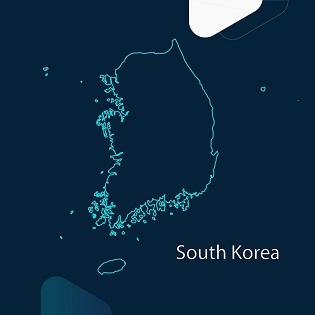
We’ve expanded our database with an extensive set of Korean names. This update brings in 10,800 given names and 1,400 family names, all available in both the Korean script and their Latin forms.
Korean Language and Cultural Context
Korean is a language spoken by about 81 million people worldwide, mainly in South and North Korea and among Korean communities abroad. It is written using Hangul, a writing system created in the 15th century.
Hangul is a unique writing system because its letters are designed to reflect the shape of the mouth and tongue when making sounds. The consonants are based on how the speech organs are used, and the vowels are built using simple patterns that represent related sounds.
Korean Naming Conventions
In Korean culture, names are more than just identifiers — they are believed to carry deep influence over a person’s life. It is widely thought that a well-chosen name can bring good fortune, while an unsuitable one might invite bad luck. As a result, many Korean parents take great care in selecting names that convey positive meanings and sounds, often aiming for names that suggest prosperity, virtue, or strength.
A modern Korean name typically consists of two parts: a one-syllable family name followed by a given name, which most commonly has two syllables. While most surnames are one syllable long — like Kim, Lee, or Park — some rare surnames have two syllables, such as Namgung or Seonwoo.
Given names are usually made up of two syllables, though one-syllable or three-syllable given names are also possible. Traditionally, many families used generation names, where siblings or cousins of the same generation share one syllable in their given names, though this practice is less common today.
Examples of Korean Name Handling
With the latest updates, our software can now analyze, match, and identify the gender of the following instances, as shown below:
- The Name Parser can now analyze names like "Yumi Pang", where Yumi is the given name and Pang is the family name, and "Dong-soo Kan", where Dong-soo is the given name and Kan is the family name.
- The Name Genderizer can now identify names such as "Soon-ja Chin" (female) and "Hee-chul Chu" (male).
- The Name Matcher can now identify a match between "Miss Gyeong" and "Ji-hyun Gyeong".
Dictionary Update: Greek Names Added
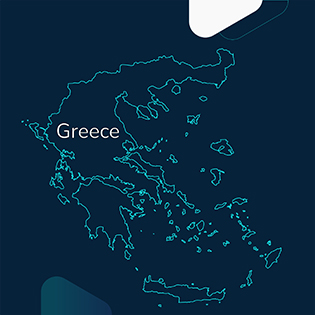
Greek has had a lasting influence on both language and names. The Greek alphabet, created in the 8th century BC, shaped many of the writing systems we use today. For example:
- The Latin alphabet, used in English and many other languages, was developed based on the Greek alphabet. That’s why letters like A, B, and E look so familiar.
- The Cyrillic alphabet, used in Russian and other Slavic languages, was also inspired by Greek, especially for translating religious texts when countries like Bulgaria, Serbia, and later Russia adopted Christianity.
Greek roots can still be found in many personal names. Popular names like Alexander (meaning defender of men) and Sophia (meaning wisdom) come straight from Greek, showing just how deeply these ancient names are embedded in everyday life.
An interesting fact about accents in Greek names is that they can indicate regional variations in pronunciation. For instance:
- "Nikos" is usually accented on the first syllable, but in some parts of Greece, you’ll hear "Nikós".
- The same goes for "Theodoros", which can also be pronounced "Theodóros" depending on where you are. These small regional differences add flavor and depth to how names are spoken and understood in Greek culture.
What’s new in our Greek name dictionary update?
- Name Parser now handles names like “Ianos Armpilias“ and “Hariklia Siskou“, correctly recognizing which is the given name and which is the family name.
- Name Genderizer identifies the gender of names like “Karolina Patriotou“ (female) and “Fanos Apostolos“ (male).
- Name Matcher can now link variations like “Lini Anthi“ and “Galene Anthi“, recognizing that “Lini“ is a diminutive of “Galene“.
This update strengthens how we handle Greek names and helps our users get better, more accurate results.
Dictionary Update: Kyrgyz Names Added
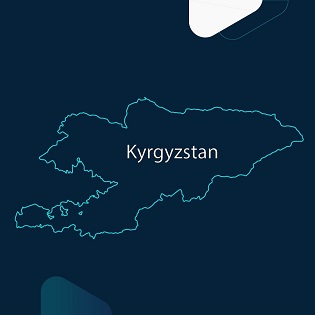
We’ve expanded our database with a rich collection of Kyrgyz names. This update includes 7,500 given names, 3,300 family names, and 1,800 hypocorisms, all provided in both Cyrillic script and their Latin transcriptions.
Kyrgyz Language and Influences
Kyrgyz is a Turkic language spoken primarily in Kyrgyzstan and among Kyrgyz communities in neighboring Central Asian countries. It shares linguistic roots with Kazakh, Uzbek, and other Turkic languages, and is written in the Cyrillic script, although Latin and Arabic scripts have also been used historically. Kyrgyz is the official language of Kyrgyzstan, where it serves as a strong symbol of national identity.
Kyrgyz Naming Customs
Traditionally, a Kyrgyz personal name consists of two core elements: the given name and a patronymic derived from the father's name, formed with the suffix -uulu ("son of") for boys or -kyzy ("daughter of") for girls. Note that male names taking this form sometimes feature the patronymic particle -tegin (“descendent of”). While historically, the patronymic precedes the given name (forming structures such as father’s name + uulu/kyzy + given name ), in more recent times, however, this order has shifted to mirror international naming conventions.
As naming practices continue to evolve, another trend has emerged: when the given name comes first, it has become increasingly common to omit the patronymic particle entirely, resulting in a simpler two-part structure - given name + father’s name. This reflects a broader shift toward modernization and simplification while still honoring familial ties. This inverted form, which is the one most often used in Western-language renderings of traditional Kyrgyz names, follows the common Western pattern of given name followed by surname.
During the Soviet era, Kyrgyz naming conventions underwent notable changes, particularly in the formation of surnames. This naming pattern mirrored Russian and Slavic norms, where -ov/-ev endings denote masculine forms, and -ova/-eva are their feminine counterparts. As a result, many Kyrgyz surnames became gendered, unlike the original Kyrgyz patronymic system, which did not differentiate surnames by gender.
Examples of Kyrgyz Name Handling
With the latest updates, our software can now analyze, match, and identify the gender of the following instances, as shown below:
- The Name Parser can now analyze names like "Aiperi Karmysheva", where Aiperi is the given name and Karmysheva is the family name, and "Kadyrbek Mukashev", where Kadyrbek is the given name and Mukashev is the family name.
- The Name Genderizer can now identify names such as "Jyldyz Dzhumabaeva" (female) and "Aidar Akanov" (male).
- The Name Matcher can now identify a match between "Cholpon Ryskeldieva" and "Chopa Ryskeldieva", where Chopa is the nickname form of Cholpon.
Dictionary Update: Urdu Names
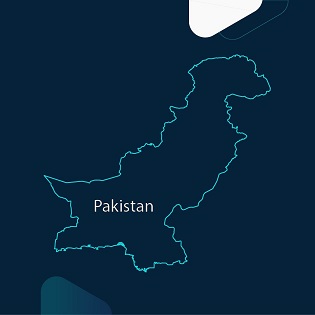
Our growing graph name database now includes around 10,100 terms in Urdu script along with their Latin transcriptions. We've added over 2,900 new relationships, such as transcriptions, variants, hypocorisms, and opposite-gender name forms.
Urdu Language and Influences
Urdu is an Indo-Aryan language spoken primarily in Pakistan and India. While it shares much of its grammar and core vocabulary with Hindi, it has a distinct identity, particularly in script, formal vocabulary, and cultural associations. It serves as Pakistan’s national language and lingua franca, and about 7-10% of the population speaks it as their mother tongue.
The Urdu script, Known as Nastaliq, written from right to left, is a modified form of the Persian script, which itself derives from Arabic.
Urdu Naming System
Urdu names in Pakistan typically follow a two-part structure: a given name, often of Arabic, Persian, or Urdu origin, and a surname, family name, or patronymic, though the latter is not always used consistently. Many people have compound given names, such as Muhammad Ali, and full names can include more than two parts.
Given names are often gendered:
- Masculine names frequently end in consonants, such as Ahmad, Khalid, Zubair, and Farhan.
- Feminine names often end in -a, -ah, or -een, such as Ayesha, Fatima, Noreen, and Shazia.
- Some names, like Noor ("light") or Iman ("faith"), are unisex.
Compound names are common, especially for males, including names such as Muhammad Usman, Syed Ali, or Abdul Rehman. Religious elements frequently appear in names, Muhammad, Abdul, Syed and Sharif are widely used, often as a prefix.
Surnames may reflect various aspects of identity:
- Tribal, ethnic, or caste affiliation (e.g., Rajput, Mughal, Sheikh, Jutt).
- Occupational origins (e.g., Chaudhry, Malik, Khan).
- Religious or scholarly lineage (e.g., Syed, Qureshi, Naqvi).
- Geographic roots (e.g., Lahori, Gilani, Bukhari).
In urban and educated circles, family names are passed down generationally, can be more flexible and may incorporate the father’s or grandfather’s name. Formal address conventions include adding Sahib for men and Sahiba for women after the name, or using titles like Janab or Begum. Informally, affectionate nicknames such as Billo, Guddu, Saba, and Babu are common, though they are not necessarily linked to formal names.
Examples of Urdu Name Handling
NameAPI services now support parsing, matching, and gender identification for names in both Latin and Cyrillic scripts. For example:
- The Name Parser can analyze names like “Zuneera Kubra Rizavi”, identifying Zuneera and Kubra as the given names and Rizavi as the surname.
- The Name Genderizer can determine the gender of names such as “Aafia Qureshy” (female), “Kalaam Jagirani” (male), and “Yameen Pitafi” (neutral).
- The Name Matcher recognizes connections like “Bahau Allahwala” and its diminutive form, “Bahauddin Allahwala”.
Maintenance Notice
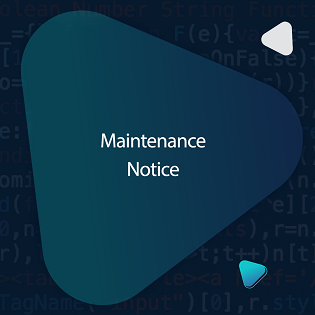
We would like to inform you that during the course of today, 28 of March, we will be performing scheduled maintenance. This maintenance may cause brief service interruptions.
The purpose of this maintenance is to ensure the continuous improvement and reliability of our systems. We appreciate your understanding and apologize for any inconvenience this may cause.
If you experience any extended issues or have any questions, please do not hesitate to contact our support team.
Thank you for your patience and cooperation.
Optimaize Team
Version 10.7.0 Released
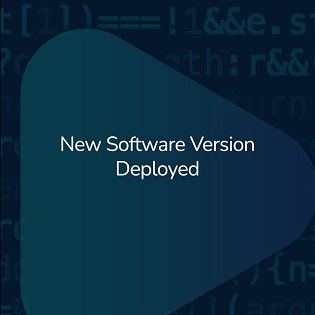
Release of Optimaize PII Platform, version 10.7.0.
The latest update includes several improvements:
- NameMatcher: Improve points for Equal Matches
The NameMatcher Service has been updated to return a full match score of 1.00 for equal names. Previously, the maximum score was 0.97 due to deductions when the birthdate was not included in the request.
- New Given Names and Surnames Added
We continued our research on names, expanding our dictionary with names from Neo English, Spanish, Greek, Azerbaijani, Urdu, and Brazilian Portuguese.
These dictionaries are used by the NameParser and NameMatcher components, which are also part of SearchCluster and RiskDetector.
- Disposable Email Address Detector
Increased the number of classified disposable email address (DEA) domains.
Endpoint Information:
The endpoint remains unchanged: https://api.nameapi.org/rest/v5.3/
These updates contribute to the continuous improvement of NameAPI's name-handling and classification services. For any queries or support, please contact our support team.
2024 Around the World

2024 has been a pivotal year for Optimaize, with notable advancements in our software capabilities, linguistic resources, and digital presence. Here’s a summary of our key achievements:
1. Dictionary Expansion
Enhanced Dictionary of Names: Added over 33,700 new given names, 14,600 new family names, and 2,250 hypocorism forms of given names. Enriched global diversity by incorporating names from regions with both high and limited representation, further enhancing the dictionary's inclusivity and worldwide relevance:
- Europe: Greek, Albanian, Bosnian, Croatian, Czech, Estonian, Finnish, Romanian, Swedish, Norwegian and Ukrainian.
- Asia: Sinhala, Malay, Kyrgyz, Azerbaijani, Georgian and Neo-English.
- Latin America: Spanish (Cuba), Quechua, Aymara and Brazilian Portuguese.
- Africa: Amharic.
Enhanced Dictionary of Professions: Expanded with over 8,300 new professional terms, including plural forms of job titles.
2. Software Enhancements
This year, our software solutions were strengthened with new features and tools:
- Swagger-UI Integration: Introduced in our REST API to improve the developer experience.
- Python Client Library: Released to facilitate seamless integration with our services.
- Enhanced Name Parsing: Now supports emojis to align with modern communication trends
- Disposable Email Address Detector: constantly adding newly classified domains
- NameAPI Dictionary Expansion: Extended to include company legal forms from various countries.
These updates make our software faster, smarter, and easier to use.
3. Website Redesign
We launched our redesigned website, https://optimaize.com/, offering an updated and user-friendly platform to better serve our visitors.
SearchCluster: Our turn-key solution for personal records continues to support mission-critical operations, efficiently managing millions of records and searches daily. For more information, see here.
Cyber Security: We remain committed to meeting the highest standards in data security and compliance, adhering to regulations such as GDPR, DORA, NIS2, PCI-DSS, and by following the ISO/IEC 27000 family of standards as our guidelines.
As we conclude 2024, these milestones reflect our ongoing commitment to innovation, quality, and supporting our clients’ needs. We look forward to building on this foundation in the year ahead.
Dictionary Update: Armenian Names

The Armenian language, part of the Indo-European family, stands out and forms its own branch. Created in 405 AD, the Armenian script comprises 38 letters, and the alphabet was designed to precisely represent Armenian phonetics, which was previously written in Greek and Syriac scripts. The language has two main dialects: Eastern Armenian, spoken in Armenia and parts of the Caucasus, and Western Armenian, maintained by the diaspora. Despite their differences in pronunciation and vocabulary, both share the same script, ensuring a unifying connection among Armenians worldwide.
The Armenian naming system typically consists of one given name and one surname, though in some cases, individuals might also have a middle name. Many names are inspired by the Bible, such as Mariam, Hovhannes (John), or Grigor (Gregory). Names like Tigran (after Tigran the Great) or Ani (an ancient Armenian city) highlight pride in Armenian heritage, and names like Lusine (moonlight) or Nare (pomegranate flower) are inspired by nature.
Armenian surnames, which are passed down through generations, often end in -yan or -ian, meaning “son of” or “descendant of”. The surname often traces family lineage, occupations, or geographic origins: Petrosyan, meaning the descendant of Petros, or Artsakhyan, which refers to someone from the Artsakh region.
We have added 8,800 new Armenian names to our graph database, which now includes approximately 19,700 Armenian terms: 4,900 given names and 14,800 family names. NameAPI services enable parsing, matching, and identifying the gender of Armenian names in both Latin and Armenian scripts. Here are a few examples:
• The Name Parser can analyze names like: “Ohanjan Margosyan”, where Ohanjan is the given name and Margosyan is the surname.
• The Name Genderizer can now identify names such as “Azganuysh Keosayan” (female), “Hrachik Terzyan” (male), and “Vosgi Yeritsyan” (neutral).
• The Name Matcher can now identify a match between “Vahan Mangasarian” and “Vahancho Mangasarian”, where Vahancho is the diminutive form of Vahan.
Dictionary Update: Ukrainian Names
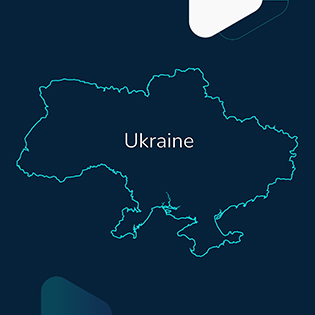
A member of the East Slavic family, the Ukrainian language shares deep historical roots with Russian and Belarusian, yet it shines with unique qualities shaped by its history and the rich cultures of neighboring countries.
Positioned at the crossroads of Central and Eastern Europe, Ukraine’s language and names beautifully incorporate elements from Polish, Hungarian, and Turkish influences. This cultural blend has given rise to a variety of naming traditions, with popular names inspired by nature, ancient folklore, and Slavic heritage. Names like Dmytro (from the Greek Demetrius, meaning “earth-lover”) and Lesya (a familiar form of Oleksandra) are the perfect example.
Names are celebrated in Ukraine during "Name days" (imenyny), with each person’s name day linked to a specific saint or historical figure, adding a cultural dimension to personal identity and tradition. Ukrainian naming laws also have some restrictions; names should indicate the gender clearly and generally align with Ukrainian language norms. Unusual or foreign names may be allowed but are often adapted phonetically to suit Ukrainian grammar.
Our growing graph database now includes approximately 27,250 terms in Ukrainian, with around 4,200 given names and 23,100 family names. NameAPI services enable parsing, matching, and identifying the gender of Ukrainian names in both Latin and Cyrillic scripts. Here are a few examples:
• The Name Parser can analyze names like: “Avgust Topolski”, where Avgust is the given name and Topolski is the surname.
• The Name Genderizer can now identify names such as “Natali Hawrylak” (female) and “Anatoliy Obuchowski” (male).
• The Name Matcher can now identify a match between “Sveta Mazurek” and “Svitlana Mazurek”, where Sveta is the diminutive form of Svitlana.
New Python Client Library Released
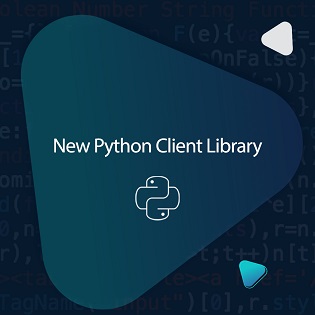
We have implemented a Python client library, now available on PyPI, providing easy access to NameAPI’s web services. This library simplifies the integration of NameAPI’s tools for processing personal names into Python applications.
With the new Python client, developers can easily connect to NameAPI’s suite of services, including name parsing, name matching, gender detection, and disposable email classification, without managing complex REST calls or JSON objects. The library also includes documentation and practical examples that demonstrate common use cases.
Install the library from PyPI with this command:
pip install nameapi-client-python
For any questions or assistance, please reach out to our support team or visit our GitHub repository.
Software Version 10.6.0 Released
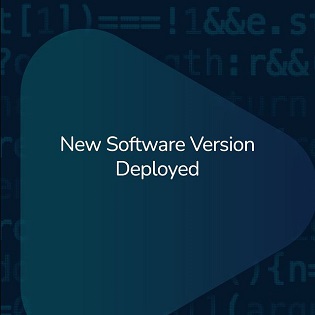
This update brings several improvements and new features designed to enhance the accuracy and performance of our services.
1. NameParser Service - Removed Duplicate Results
Our NameParser service has been improved to eliminate duplicate results. Previously, very similar results could appear multiple times, differing only in likeliness and confidence scores.
2. Updated Java Libraries and Switched to HikariCP
We have updated Java dependencies to improve security and performance. Additionally, we replaced c3p0 with HikariCP for database connection pooling. This change offers several benefits, including faster connection setup times, reduced memory footprint, and overall better performance, helping our systems to be more efficient and responsive.
3. Classifying New Domain Names
We are expanding our capabilities in domain name classification. The system now classifies 1000 new domains into categories like disposable, organization, freemail, and more.
4. Expanded Professions Vocabulary
We have added new professions in Portuguese, Icelandic, English, and Finnish. This expanded vocabulary will allow for greater coverage in parsing and understanding professional titles across different languages.
5. New Given Names and Surnames Added
Our team has researched and added new given names and surnames from a diverse range of cultures: Danish, Romanian, Czech, Kyrgyz, and Aymara.
Whether you are working with data from Europe, the USA, Asia, or any other region, our NameAPI solutions are global. They can parse and analyze names from all cultures and scripts. We continuously improve our software and add more names to ensure extensive coverage.
Discovering Czech Names
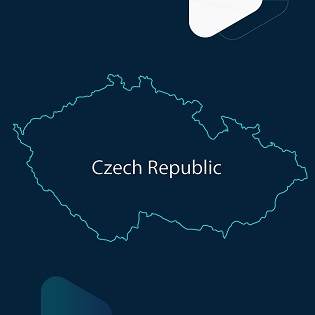
As part of the West Slavic group, the Czech language shares similarities with Slovak and Polish, but it has also been influenced by German, incorporating many German loanwords into everyday vocabulary.
Many Czech given names are derived from saints and biblical figures, while others have Slavic roots, like Václav (Wenceslaus) and Ludmila. A notable aspect of Czech language use in names is the widespread use of diminutives, with affectionate forms like Pepík for Josef or Martinka for Martina common in everyday conversation. While the gender of Czech given names is generally recognized based on tradition and common usage, the gender distinction is more pronounced in surnames, where male surnames typically end in a consonant or “-ý”, and female surnames usually adopt the suffix “-ová”.
There is also a practice of using double-barreled surnames, which involves combining both parents' last names (e.g., Nováková-Soukupová). This trend is becoming increasingly common in the Czech Republic, especially after marriage or when children inherit the surnames of both parents. Czech naming practices also emphasize the importance of “name days” (jmeniny), celebrated alongside one’s birthday.
There are specific restrictions on naming conventions in the Czech Republic, particularly when it comes to naming children. For example, names must clearly indicate gender and should not be offensive or overly unusual. Foreign names may be allowed but must fit within the framework of the Czech language, and some may be adapted to meet Czech grammatical standards.
Currently, our comprehensive database contains around 31,000 terms in Czech, including approximately 2,500 given names and 27,700 family names, and these numbers continue to rise.
With the latest updates, our software can now analyze, match, and identify the gender of the following instances, as shown below:
• The Name Parser can now analyze names like: “Rotislav Kozisek”, where Rostislav is the given name and Kozisek is the surname.
• The Name Genderizer can now identify names such as “Zdenda Gunárová” (female) and “Ludomír Hrbek” (male).
• The Name Matcher can now identify a match between “Zaplík Kozar” and “Zapletal Kozar”, where Zaplík is the diminutive form of Zapletal.
Romanian Names Added
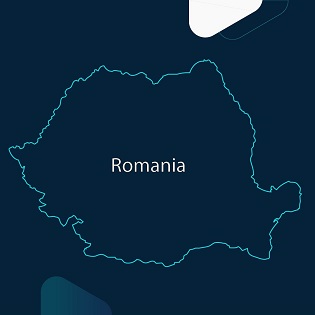
The Romanian language, a Romance language derived from Latin, is unique in Eastern Europe, featuring influences from Slavic, Hungarian, Turkish, and Greek languages.
Romanian names reflect this rich cultural blend and follow Western naming conventions, with a given name (prenume) followed by a surname (nume de familie). This structure contrasts with the patronymic systems often found in neighboring Eastern European countries like Serbia, Russia, Bulgaria, and Ukraine.
Masculine names often end in a consonant, such as -n (Ciprian), -r (Victor), or vowels like -e (Gheorghe) or -i (Matei), with some exceptions where names end in -a (Mircea, Luca), while feminine names typically end in -a (Ioana, Doina). Diminutive forms, like Alexandru becoming Sandu, are common.
Surnames usually end in -escu or -eanu, indicating lineage, such as "Popescu" (son of the priest) and -eanu (-anu, -an) indicating the name of a place, river, or region, such as "Bihorean" (someone from Bihor county). Unique Romanian names, often encountered only in Romania and Moldova, include traditional names like "Codrin", "Viorel", "Ruxandra" and "Crina". These names reflect Romania's rich cultural heritage and natural beauty, celebrating local myths, legends, and the agrarian past.
At present, our database counts more than 60,000 terms, with 3,000 given names and around 56,400 family names.
With the latest updates, our software can now analyze, match, and identify the gender of the following instances, as shown below:
- The Name Parser can now analyze names like "Doina Precup", where Doina is the given name and Precup is the family name, and "Vasile Oltean", where Vasile is the given name and Oltean is the family name.
- The Name Genderizer can now identify names such as "Ileana Alupoaiei" (female) and "George Bogdanu" (male).
- The Name Matcher can now identify a match between "Irina Negrean" and "Iri Negrean", where Iri is the short form of Irina.
Software Version 10.4.0 Deployed
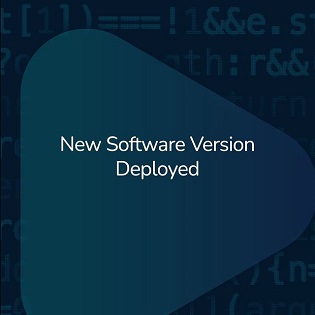
The latest update includes several improvements:
- Expanded Database of Names: new names added, including Croatian, Estonian, Malay, Finnish, and Albanian.
- Classification of More Domains: this directly benefits the Disposable Email Address Detector, making it more accurate in identifying temporary or disposable email domains.
- Legal Company Forms in Various Languages: improved recognition and parsing of legal company forms across multiple languages.
Endpoint Information:
The endpoint remains unchanged: https://api.nameapi.org/rest/v5.3/
These updates contribute to the continuous improvement of NameAPI's name-handling and classification services.
For any queries or support, please contact our support team.
Database Expansion: Malay Names
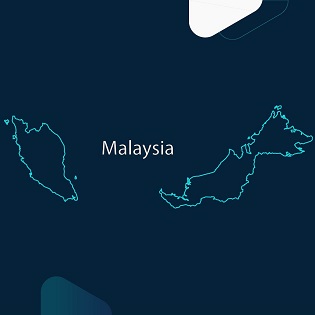
Malay names, part of the Austronesian language family and typically written using the Latin-based Rumi script, reflect a rich cultural heritage shaped by Malaysia's diverse history. Unlike Western naming conventions, Malays typically do not use surnames. Instead, the names typically consist of a given name followed by a patronymic indicating lineage, using bin (son of) or binti (daughter of) before the father's given name, reflecting the influence of Islamic and Arabic traditions on Malay naming practices.
While traditional Malay names are common, many Malays also have names influenced by Arabic, Persian, Indian, or even Western cultures due to historical interactions and colonization. Examples of male names include “Adilin”, “Ismail”, and “Mail”, while common female names include “Azura”,“Heryati”, and “Zahra”. These names often combine traditional and modern elements, reflecting both religious devotion and cultural evolution.
However, there are cases where surnames can appear in Malay names, particularly among those with aristocratic backgrounds or mixed ethnic heritage. Some noble families may pass down surnames like Megat or Nik to signify lineage and status. Additionally, Malays with Indian, Chinese, or Western ancestry might retain family surnames due to cultural blending or historical reasons, adding a unique layer to the traditional Malay naming structure.
Currently, our comprehensive database contains over 10,000 terms in Malay, and the number continues to grow.
With the latest updates, our software can now analyze, match, and identify the gender of the following instances, as shown below:
• The Name Parser can now analyze names like: “Hasim bin Hassan”, where Hasim is the given name and bin Hassam is the surname.
• The Name Genderizer can now identify names such as “Rosnah Adawiah” (female) and “Azalan Yusmati” (male).
• The Name Matcher can now identify a match between “Ina binti Navalamar” and “Afina binti Navalamar”, where Ina is the diminutive form of Afina.
Exploring Estonian Names
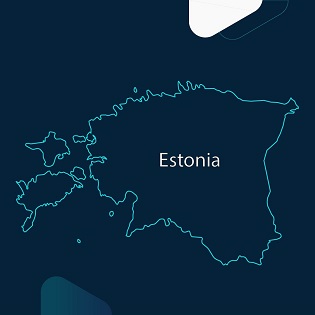
Did you know that in the Estonian language, there is no distinction between "he" and "she", as the language does not have grammatical gender? Instead, the same pronoun, "tema", is used for everyone, reflecting Estonia's cultural emphasis on equality. The evolution of Estonian names has been shaped by the country's history, including periods of German, Swedish, and Russian rule. During the 19th century, The Estonian Age of Awakening played a crucial role in standardizing Estonian names, highlighting the importance of preserving cultural identity.
Estonian names typically consist of a given name (eesnimi) and a surname (perekonnanimi). Surnames can be patronymic, derived from the father's name, or matronymic, reflecting the mother's lineage. Additionally, many surnames are inspired by nature or geographical features, such as Tamm (meaning "oak") and Järv (meaning "lake"). Estonian names often draw inspiration from the natural world, highlighting the deep connection between the people and their environment.
Presently, our comprehensive database contains close to 15,000 terms in Estonian, including around 5,000 given names and 9,000 family names. These numbers continue to rise as we delve deeper into the linguistic and cultural heritage of Estonia.
Our latest updates now offer advanced capabilities for evaluating, correlating, and identifying the gender of various terms, as shown in the examples provided:
• The Name Parser can now analyze names like: “Zinaida Inna Mikola”, where Zinaida and Inna are the given names and Mikola the family name, and “Aleksandr Laar” where Aleksandr is the given name and Laar the family name.
• The Name Genderizer can now identify names such as “Mare Kallas” (female) and “Janek Voronin” (male).
• The Name Matcher can now identify a match between “Siri Mathisen” and “Sigrid Mathisen”, where Siri is the diminutive form of Sigrid.
Finnish Names in Focus
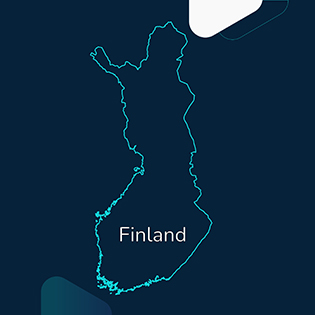
Finnish, a Finno-Ugric language with a Latin-based alphabet including ä and ö, has three dialect groups—Western, Eastern, and Northern—whose variations led to the 19th-century standardization of Western dialects during an era of national romanticism to strengthen Finnish cultural identity.
Finnish names typically consist of a given name (etunimi) and a surname (sukunimi). Surnames can be patronymic, derived from the father's name, or matronymic, reflecting the mother's lineage. They can also indicate geographical origins or occupations, such as Virtanen, meaning "by the river."
The evolution of Finnish names has been influenced by the country's history, including periods of Swedish rule and other cultural interactions. Consequently, Finnish names are diverse and often inspired by nature. For example, names like "Aamu" (meaning "morning") and "Kielo" (meaning "lily of the valley") reflect the deep cultural significance of the natural world in Finland.
An interesting aspect of Finnish naming conventions is the use of double-barreled surnames. When a couple marries, they may choose to combine their surnames into a hyphenated form, reflecting both family names. This practice highlights the Finnish values of equality and individuality in personal identity.
Currently, our comprehensive database contains over 28,700 terms in Finnish including around 7,000 given names, 19,000 family names and 1,300 professions, and these numbers continue to rise.
With the latest updates, our software can now analyze, match, and identify the gender of the following instances, as shown below:
• The Name Parser can now analyze names like: “Anneli Ritva Korhonen”, where Anneli and Ritva are the given names and Korhonen the family name, and “Pekka Niemi” where Pekka is the given name and Niemi the family name.
• The Name Genderizer can now identify names such as “Kaarina Leppänen” (female) and “Veikko Räsänen” (male).
• The Name Matcher can now identify a match between “Tassu Lahti” and “Tapio Lahti”, where Tassu is the diminutive form of Tapio.
Database Update: Croatian Names
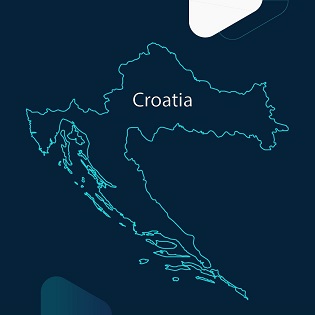
Naming conventions in Croatia emphasize family heritage, often involving naming children after grandparents or ancestors to honor lineage. Celebrating name days (imendan), which honor the saint after whom an individual is named, is as significant as celebrating birthdays. Croatian names incorporate influences from Slavic, Latin, German, Hungarian, and Italian cultures and are often inspired by saints, nature, and occupations. Additionally, diminutives and nicknames are commonly used, reflecting affection and familiarity; for example, someone named Hvalimir might be affectionately called Hvalko.
The Croatian naming system typically involves a given name (ime) and a surname (prezime), which is usually patronymic, indicating lineage, or derived from geographical locations or occupations. Surnames often include prefixes or suffixes that denote familial connections, such as Petrovi? (son of Peter).
At present, our databases contain a total of around 22,800 terms in Croatian, including over 4,900 given names and 19,300 family names, and more than 1,600 hypocorisms (diminutives, nicknames, short forms), with these numbers growing every day.
With the latest updates, our software can now analyze, match, and identify the gender of the following instances, as shown below:
• The Name Parser can now analyze names like “Jovka Travljanin”, where Jovka is the given name and Travljanin is the family name, and “Svetoljub Cvetašin Marelja”, where Svetoljub and Cvetašin are the given names and Marelja is the family name.
• The Name Genderizer can now identify names such as “Korana Paraga” (female) and “Pakal Fonjga” (male).
• The Name Matcher can now identify a match between “Ostoja Antišin” and “Ostojiša Antišin”, where Ostojiša is the diminutive form of Ostoja.
Albanian Names in Focus
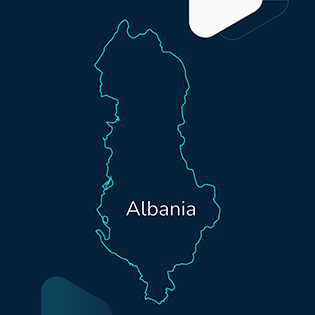
Did you know that Albanian names reflect a blend of ancient Illyrian heritage, religious influences from Islam and Christianity, and modern trends? They embody a fascinating fusion of historical roots and contemporary identity, highlighting Albania's rich cultural heritage through its naming conventions.
Albanian names are composed of a given name, the given name of the individual's father (which is seldom included except in official documents), and a surname. Albanian given names traditionally have original Albanian meanings or historical origins, and during the Communist regime, names believed to be Illyrian were introduced to replace traditional names.
Many Albanian surnames have origins from various cultural influences, but often don't align with current identities due to secularization, intermarriage, and changes during the late Ottoman period.
Currently, our comprehensive database contains around 21,700 Albanian terms, including over 11,800 given names and 9,900 family names, and these numbers are continually growing.
With the latest updates, our software can now analyze, match, and identify the gender of the following instances, as shown below:
• The Name Parser can now analyze names like “Mirlinda Alihoxha”, where Mirlinda is the given name and Alihoxha is the family name, and “Kreshnik Bice”, where Kreshnik is the given name and Bice is the family name.
• The Name Genderizer can now identify names such as “Gentiana Dushaj” (female) and “Adriatik Farruku” (male).
• The Name Matcher can now identify a match between “Afërdita Gjokaj” and “Dita Gjokaj”, where Dita is the diminutive form of Afërdita.
Swedish names: Tracing the Threads of Northern Culture
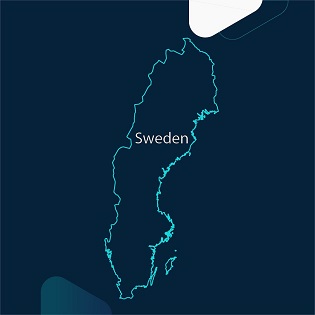
Originating from Old Norse, Swedish is spoken in Sweden and in regions of Finland, where it enjoys co-official language status. It shares a high degree of mutual intelligibility with Norwegian and Danish, although this can vary depending on the speaker's dialect and accent.
Swedish naming conventions include a given name and a surname. Historically, many Swedish given names were deeply rooted in Norse mythology, Christian tradition, and the natural world. These names were often chosen to honor relatives, reinforcing family heritage and continuity. Nowadays, it is common for individuals to have two given names, and the primary name used in daily life (tilltalsnamn) is not necessarily the first one listed.
Family names, as we understand them today, started being widely adopted during the 19th century, replacing the patronymic system that was common in Scandinavian countries. This shift marked a significant change from the earlier practice where surnames were derived from the father's first name, with the addition of -son for sons and -dotter for daughters.
Currently, our extensive database includes approximately 16.200 Swedish terms, featuring over 5700 given names and 9700 family names, with these figures continually increasing.
With the latest updates, our software can now analyze, match, and identify the gender of the following instances, as shown below:
- The Name Parser can now analyze names like “Torfrida Renman”, where Torfrida is the given name and Renman is the family name, and “Dagfinn Vikholm”, where Dagfinn is the given name and Vikholm is the family name.
- The Name Genderizer can now identify names such as “Vifrid Åkerholm” (female) and “Åke Smedlund” (male).
- The Name Matcher can now identify a match between “Totta Björkstrand” and “Torsten Björkstrand”, where Totta is the diminutive form of Torsten.
Expanded NameAPI Database for Company Legal Forms
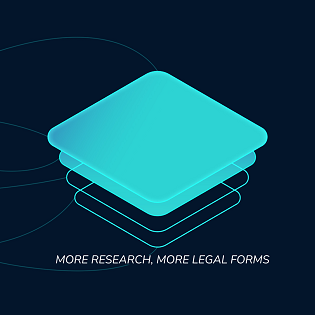
We've expanded our NameAPI database to include a comprehensive list of company legal forms from various countries. This significantly enhances the system's ability to recognize and understand the legal structure of businesses globally, regardless of the language or writing script used in their legal documents.
This update includes legal forms from over 50 languages and 10 writing scripts, highlighting the remarkable diversity of legal forms within our NameAPI database. Notably, we've added forms such as:
- Sh.p.k. Shoqëri me përgjegjësi të kufizuar (Albanian)
- Sdn. Bhd. Sendirian Berhad (Malay)
- FIE Füüsilisest isikust ettevõtja (Estonian)
- CPT Cuideachta Phoiblí Theoranta (Irish)
- MB Mažoji bendrija (Lithuanian)
- PD Perusahaan Dagang (Indonesian)
- SAE Sharikat al-Mossahamah (Arabic)
- OAJ Ochiq aksiyadorlik jamiyati (Uzbek)
- d.d. Delniška družba (Slovene)
This update is only the initial step in our ongoing effort to broaden our database by adding more company legal forms from various regions and languages. By doing so, we aim to substantially improve our services and offer better support for accurately parsing and recognizing company names worldwide.
Software Version 10.3.0 Deployed
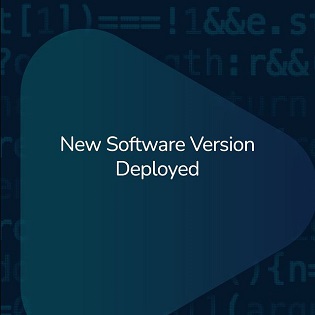
We are pleased to announce the deployment of Software Version 10.3.0, bringing significant enhancements to our system's capabilities in handling personal names and detecting disposable email addresses.
Key Functionalities in This Version
1. Name Parser Improvements
Emoji Handling: The Name Parser can now clean requests containing emojis, ensuring accurate identification and return of name parts.
Example: "•••Dr. Emily Johnson•••" will be cleaned and processed as "Dr. Emily Johnson".
2. Extended Professions Database
We have added over 3,300 professions from German, English, Norwegian, Danish, Spanish, and French cultures. This update improves the accuracy of the Name Parser results.
3. Disposable Email Address Detection
The email classifier now includes 88,079 new domains belonging to various organizations, benefiting the accuracy of detecting disposable email addresses.
4. Risk Detector Enhancement
Phone Number Validation: The system now correctly identifies phone numbers in national formats when no country code is provided and no country can be inferred from other fields.
5. Ongoing Improvements
Our extensive Graph Name Database, regularly updated and enriched by our dedicated data research team and native collaborators, allows the NameAPI services to parse and match a greater variety of names.
Endpoint Information:
The endpoint remains unchanged: https://api.nameapi.org/rest/v5.3/
These updates ensure that our services continue to provide accurate and reliable results, reflecting our commitment to continuous improvement and quality.
For any queries or support, please contact our support team.
Sinhala Names: A Window into Sri Lanka’s Cultural Identity
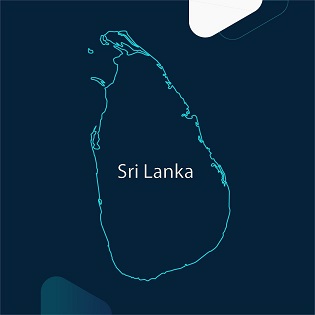
Sri Lanka, an island nation nestled in the Indian Ocean, captivates with its diverse landscapes, from lush rainforests and misty mountains to pristine beaches and ancient ruins. At the heart of Sri Lanka's cultural mosaic lies the Sinhala culture, predominant among the Sinhalese people who form the majority of the population, deeply rooted in Buddhist traditions and practices.
Sinhala, the language of the Sinhalese, is an Indo-Aryan language with its own unique script. The language exhibits diglossia, with distinct forms for written and spoken varieties, and it shares close linguistic ties with the Maldivian language.
From their simple origins, Sinhala personal names in Sri Lanka have evolved over time, initially reflecting individual traits or societal roles, and later being influenced by European colonialism, particularly from the Portuguese, Dutch, and British. In Sri Lanka's varied social landscape, names reflect ethnic backgrounds and historical roles, for example, Muslim names frequently connote involvement in commerce, while Tamil names often denote intellectual achievement in fields like medicine and engineering. Sinhala names are the echos of the traditional occupations or ancestral ties to royalty.
Sinhala naming conventions typically encompass a given name, a family name that may include the father's name and often features the "Ge" suffix, and a surname, each with distinct meanings. The system is adaptable, with some names comprising all three elements, while others may only include a given name and surname. The "Ge" suffix, either "-ge" or "-ghe," signifies a family's ancestral home and social standing, and despite changes from Western influences, these names continue to be a vital part of one's legacy in Sri Lanka.
Currently, our comprehensive database counts a total of around 18.500 Sinhala terms, among which over 10.000 are given names and 5000 are family names, and the numbers continue to grow. In addition to various types of terms (given names, hypocorisms, family names, "Ge" names, titles, etc.) we also created over 17.400 relations between them.
Due to our comprehensive database, which includes new Sinhala names and relations, our software can now analyze, match, and identify the gender of the following instances, as shown below:
The Name Parser can now analyze names like “Uvindu Pathiranalage”, where Uvindu is the given name, and Pathiranalage is the family name.
The Name Genderizer can now identify names such as “Gunasiri Samaranayake” (male), “Kanchanamala Arachchi” (female), and “Chamika Dandeniya” (neutral).
The Name Matcher can now identify a match between “Dinu Irugalbandara” and “Dinusha Irugalbandara”, where Dinu is the short form of Dinusha.
Enhanced NameAPI Database

We've updated our NameAPI database to better handle names that include professions. We have added over 3300 professions from the cultures German, English, Norwegian, Danish, Spanish and French and now, the system can parse and match names more accurately. Additionally, it also recognizes plural forms of job titles.
This update is just the starting point as we plan to expand our database by including even more job titles in various languages. This will help us enhance our services and provide even better support for understanding and parsing names globally.
Bosnian names: Echoes of Diversity and Heritage

Bosnia and Herzegovina stands out in Europe for its remarkable diversity, being a country where three official languages (Bosnian, Serbian, and Croatian), two writing systems (the Latin and Cyrillic alphabet), and multiple religions, including Christianity and Islam, coexist within a society composed of three distinct ethnic groups.
Situated at the crossroads of numerous civilizations, Bosnian names often encompass Slavic, Turkish, Arabic, and Persian influences, showcasing the rich tapestry of the country's history and cultural exchanges.
Bosnian names consist of two fundamental components, a given name and a surname. Bosnian naming conventions emphasize both cultural heritage and individual identity, with given names often chosen to reflect familial lineage, religious affiliation, or personal significance, while surnames provide a connection to ancestral roots and regional identity.
Traditionally, given names used to mark a person’s ethnicity and religion - Bosniaks often may have a name with an Islamic or Turkish origin, while Croats and Serbs have names influenced by Christianity. Today, it has become more common to use non-denominational or globally inspired given names, reflecting the increasingly interconnected and diverse nature of contemporary society. Family names come before the personal name, a common convention across Bosniaks, Serbs and Croats.
Currently, our comprehensive database contains roughly 2700 given names and 10.200 family names, and the numbers continue to grow.
With the recent additions, our software can now analyze, match, and identify the gender of the following instances, as shown below:
- The Name Parser can now analyze names like “Idmir Doglod”, where Idmir is the given name and Doglod is the family name, and “Dzana Peljto”, where Dzana is the given name and Peljto is the family name.
- The Name Genderizer can now identify names such as “Beguna Hrusto” (female) and “Zahrudin Cviko” (male).
- The Name Matcher can now identify a match between “Behro Merdan” and “Behrudin Merdan”, where Behro is the short form of Behrudin.
Larger Name Database

We are pleased to announce a new update to our database, which now features a broader range of names with their relations from many cultural backgrounds, spanning from Europe to Asia.
Our data researchers and native freelancers have added thousands of new given names, family names, hypocorisms, and other term types from 16 languages to our database, enhancing the quality of the Name Parser, Name Matcher, and the whole suite of NameAPI services.
Embark on a journey through the diverse landscape of names with us, as we continuously grow our dataset by collecting names from every corner of the globe.
Diving Deeper into Latin American Names

From the indigenous communities of the Andes to the Afro-Caribbean rhythms of the Caribbean coast, Latin America's mesmerizing diversity is rightfully celebrated worldwide. Latin America is estimated to have over 600 indigenous languages, along with Spanish and Portuguese as the main languages.
In 2023, our team has continued researching names, and Latin America was one of the main continents explored. Thousands of new given and family names from Spanish and Portuguese-speaking countries, including those from Cuba, Chile, Argentina, Mexico, Brazil and Portugal were manually researched and imported.
Our name database now stores over 6000 given names and 2600 family names of Portuguese origin, over 10.000 given names of Spanish origin, and over 21.300 family names that are spread across all the Spanish-speaking countries. Directly collaborating with native speakers from these countries, we managed to ensure full accuracy, which we will continue to focus on in the future. Moreover, names from new and trustworthy online sources were explored and added (Wikidata), which further enriched our name database.
Thanks to the hard work of our research team, our software can now successfully parse, match and assess the gender of the following names:
- The Name Parser can now analyze names like "Ángela de la Villalabos" and "Neder de Jesús Ferrerira".
- The Name Matcher can now compare names like "Abigail del Pilar Rodriguez De Mesa" with "Abigail Rodriguez".
- The Name Genderizer can identify the gender of names like "Sandra Del Pilar Paz y Miño" (female) and "Hermindo Peña Y Lillo" (male).
Swagger-UI: The New and Improved Way to Use Our REST API

We are happy to announce that we have added a new feature to our REST API: Swagger-UI, which allows you to interact with our API in a user-friendly and intuitive way.
You can find it here: https://api.nameapi.org/rest/swagger-ui/
What is Swagger and What's New?
Swagger is a powerful tool serving as a framework for documenting, testing, and visualizing APIs. With the implementation of Swagger-UI in our API, we bring significant improvements to our users' experience.
Interactive and Intuitive Documentation
One of the biggest challenges when using an API is understanding it and finding the right way to interact with it. With Swagger-UI, this task becomes much easier. Our users can access the complete documentation of our API directly in an interactive and intuitive web interface. Each endpoint, parameter, and response is detailed and clearly presented, facilitating navigation and understanding.
Efficient and Real-Time Testing
Another major advantage of implementing Swagger-UI is the ability to test our API in real-time, directly from the browser. Users can send requests to endpoints and see the responses immediately, without the need to install or use other testing tools. This allows for more efficient development and debugging, as errors can be identified and remedied quickly.
Continuous Updating
The documentation generated by Swagger-UI is automatically updated with any changes made to our API, ensuring that our users have access to the latest version.
To get started, simply get an API Key here, and you're ready to execute requests.
Software Version 10.2.0 Deployed

A software update has been installed on our servers which can handle more personal names and detect more disposable email addresses.
Functionalities in this version:
- Name Parser improvements for MULTIPLE people in the full name field.
- Name Parser improvements for names with professions in the full name field.
- Research and add functional email addresses (usernames) in different languages.
- And more.
Note: The endpoint remains the same: https://api.nameapi.org/rest/v5.3/
The NameAPI services can now parse and match a greater number of names thanks to our extensive Graph Name Database. This database is regularly updated and continuously enriched with new terms by our dedicated data research team and native collaborators.
New Year, More Names

We are delighted to share that we have just released an enhanced version of the DB with thousands of new names and relations (transcriptions, hypocorisms) from several European, Asian, and African cultures.
Our data research team together with collaborators from all around the world have enriched the DB with 18 languages, improving the quality not just for Name Parser or Name Matcher, but for the full suite of services.
Join us in discovering the world of names as we regularly add new ones and constantly upgrade our services.
2023 Around the World

2023 has been a busy year at our office for the data research team, as we have focused on 3 major projects:
- Collaborators: we enjoyed working with natives from Denmark, Sri Lanka, Kyrgyzstan, Greece, Cuba, Pakistan and Bulgaria who have provided and reviewed valuable name data corresponding to their culture.
- Wikidata: we extracted a huge library that provided us hundreds of thousands of names that allowed us to enhance even more our DB with given names and family names.
- Name Matcher: we created thousands of relations between numerous term types, such as transcriptions (Cyrillic, Greek, Sinhala, Urdu), translations, variants, gender opposite relations and many more.
The improvements from these projects are already noticeable in our webservices and they will continue in our future deployments.
Software Version 10.1.1 Deployed

The latest software update includes refinements in the points allocation for the Risk Detector, aiming to provide a more comprehensive evaluation.
Here are the 2 changes in the points calculations:
- One notable improvement involves the assignment of negative points for each valid and non-risky field. In the previous version, a valid name like "Peter Meyer" would receive 0 points. However, in the new release, it now accumulates -0.24 points, reflecting the absence of detected risks.
- Additionally, we have fine-tuned the assignment of positive points, ensuring a more precise evaluation. If all input fields are detected as risky, the total assigned points will now reach the value of 1, offering a more accurate representation of potential risks.
Try our Risk Detector Service now.
Slovene names: Unraveling a Fascinating Blend of Cultures

Did you know that Slovenian’s great variety of names reflects the country’s fascinating blend of cultures, such as Slavic, Germanic and Romance? Naming in Slovenia is guided by a combination of historical influences, family ties, and linguistic nuances. Names such as Mila or Aleksej echo their Slavic roots, while others like Franc or Marija mirror the Germanic influence.
Slovene names are made up of two essential parts, a given name and a surname. The naming process may also involve the addition of a second given name, which can be chosen for personal or familial reasons. Customary, given names used to be almost exclusively borrowed from the Christian almanac of saints, but today this practice is less common, with new international given names emerging annually, reflecting global influences and changing societal preferences.
Currently our enriched database comprises approximately 3800 given names and 5700 family names, and the numbers continue to grow.
With the recent additions, our software can now analyze, match, and identify the gender of the following instances, as shown below:
• The Name Parser can now analyze names like “Ožbalt Tkalec”, where Ožbalt is the given name and Tkalec is the family name, and “Jožica Kuhar” where Jožica is the given name and Kuhar is the family name.
• The Name Genderizer can now identify names such as “Rijana Suhi” (female) and “Miklavž Jernejec” (male).
• The Name Matcher can now contrast “Jeta Glonar” and “Marjeta Glonar”, where Jeta is the short form of Marjeta.
Expanding Horizons: Introducing Fresh Additions to Our Name Database!
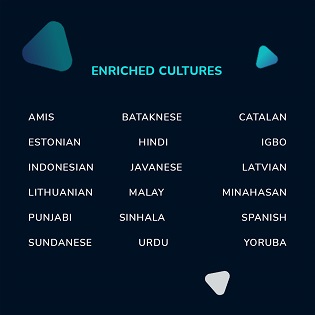
Collaborating diligently with natives worldwide, our research team has successfully integrated new names from multiple European, Asian, and African cultures.
Additionally, we have successfully imported around 16.000 relations between terms, a development that greatly enhances our suite of services. This enriches not only our Name Matcher and Name Parser but also ensures a more accurate experience across all our services.
Explore the world of names with us as we constantly introduce new additions and continuously enhance our services.
Introducing the Latest Version: Java Client Library 6.0.0

The new and noteworthy feature of the Java™ Client Library 6.0.0 is its migration to Java 17.
The client library grants seamless access to the NameAPI Web Services, is compatible with Java-based programming languages and offers a user-friendly programming interface.
It stands as an open-source project, managed on GitHub.
For Maven projects, simply add the following lines to your pom.xml file:
<dependency>
<groupId>org.nameapi.client</groupId>
<artifactId>nameapi-client</artifactId>
<version>6.0.0</version>
</dependency>
For Gradle projects, include this line in your build.gradle file:
implementation 'org.nameapi.client:nameapi-client:6.0.0'
By including this dependency, you can easily integrate the Java Client Library 6.0.0 into your project, enabling access to NameAPI Web Services.
Discover Our Name Parser Service

Efficiently and accurately analyze personal names, regardless of cultural or linguistic variations, using our advanced Name Parser webservice. While colonization and globalization have contributed to a more standardized approach to naming, there are still numerous cultural peculiarities that make this process challenging.
Our product efficiently processes millions of requests every day and has earned the trust of numerous financial companies and online stores through its proven track record of reliability and successful utilization.
Seamless Name Parsing Experience
Struggling to decipher foreign names presented in various formats? Our Name Parser service offers an ideal solution. The accuracy of name parsing depends on the ability to detect the cultural context from which the name originates. This cultural awareness enables us to parse names with precision.
Our team continuously grows our dataset by conducting thorough manual research and collecting names from every corner of the globe.
With every updated version, our Name Parser, powered by an expansive database, broadens its capability to parse a wider range of personal names and their associated attributes. It systematically breaks down full names into their individual components, encompassing given names, surnames, titles, and more.
Get Started Today!
Try our Name Parser Service now.
Bulgarian Names: Stories of Tradition and Identity

Did you know that within the Bulgarian culture, name days often hold greater significance and are celebrated more prominently than birthdays? This unique tradition highlights the profound link between personal names and religious practices in Bulgarian society.
Traditional Bulgarian surnames often had connections to a person's occupation or a characteristic. For example, the surname Kovachev, derived from the word "kovach", meaning "blacksmith", suggests a family history tied to the blacksmithing profession, or Radoslav, that could suggest a connection to individuals with joyful or cheerful dispositions.
Bulgarian names, composed of three fundamental parts - the given name, the patronymic (middle name), and the surname - formulate a distinct identity for each individual. The middle name, an integral part of this identity, finds its roots in the father's name, supplemented by an affix that distinguishes gender. For instance, if the father's name is Ivan, a son would bear the middle name Ivanov (indicating "son of Ivan"), while a daughter would possess the middle name Ivanova (signifying "daughter of Ivan").
Our comprehensive database encompasses nearly 10.000 distinct given names, and the list of approximately 4200 family names continues to grow.
With our recent updates, our software can now analyze, match, and identify the gender of the following instances, as shown below:
• The Name Parser can now analyze names like "Velinov Spas", where Velinov is the surname and Spas the given name and "Stoyanka Mikhneva" - Stoyanka - given name and Mikhneva - family name.
• The Name Genderizer can recognize names like "Rositsa Pasheva" (female) and "Nedelcho Eftimov" (male).
• The Name Matcher can now compare "Ventislav Tenev" and "Ventsi Tenev", where Ventsi is the short form of Ventislav.
Extended Credit Validity Period

We are excited to announce a significant update to our credit system at NameAPI!
Effective immediately, the validity period for NameAPI credits has been increased, allowing you to use your credits for a longer duration.
This means you now have even more time to leverage the power of our comprehensive suite of web services without worrying about credit expiration.
Our web services offer a wealth of capabilities, including name parsing, gender identification, name matching and email parsing, to name just a few.
Thank you for choosing NameAPI!
Kazakh Names: Reflections of Identity and Belonging

Did you know that certain regions in Kazakhstan have unique naming traditions and preferences? For example, in the southern region, names influenced by Persian and Turkic origins are more common, while in the western region, names influenced by Russian culture can be found.
The process of selecting names for newborn children in Kazakh families is treated with utmost seriousness, as it is considered the most significant occasion following the birth of a child.
Kazakh names typically follow a specific structure consisting of a given name, a patronymic and a family name. The patronymic is created by adding a suffix to the father's name. For instance, if the father is named Abay, the son's patronymic would be Abayevich (for a son) or Abaykyzy (for a daughter).
Currently, our database comprises around 17.000 Kazakh given names and more than 98.000 family names.
Due to the recent additions made by our team, our software can now easily analyze, match, and determine the gender of the following instances, as shown below:
• The Name Parser can now analyze names like "Rysaldy Urazov" and "Aizhamal Izmailova".
• The Name Genderizer can recognize names like "Ainash Dzhanaibayeva" (female) and "Zaiyr Yelenov" (male).
• The Name Matcher can now compare "Anargul Akhmetkali" and "Anara Akhmetkali".
Ethiopian Names Imported: Unveiling Rich Heritage

Did you know that Ethiopia boasts a diverse linguistic landscape with over 80 languages spoken throughout its regions? As of 2020, it officially recognizes five languages: Amharic, Oromo, Tigrinya, Somali, and Afar. Additionally, English serves as the predominant foreign language, being widely spoken and used as the primary language for teaching in university courses.
The Ethiopian name structure consists of a given name followed by a patronymic name, usually the father’s or grandfather's first name. For example, if the father's name is Alemayehu, the child's name will also include Alemayehu. The first name can be influenced by various factors, including cultural traditions, religious beliefs, personal preferences, or the circumstances surrounding the birth.
Overall, the structure of Ethiopian names encompasses the given name, representing the individual's unique identity, and the patronymic, emphasizing their familial connections and lineage.
Our database currently contains over 11.200 Ethiopian names.
The following are a few examples that our software can now easily parse, match and genderize, as a result of the additions made by our team:
• The Name Parser can now analyze names like "Abebe Kebede" and "Betelihem Woinhareg".
• The Name Genderizer can recognize names like "Aida Lensa" (female) and "Tewodros Alemayehu" (male).
• The Name Matcher can now compare "Mamushat Tesfaye" and "Mamush Tesfaye".
Cultural Fusion of Cameroonian Names

Cameroon is a multilingual country in Central Africa, with over 200 different languages spoken. The languages belong to several language families, including Niger-Congo, Nilo-Saharan, Afro-Asiatic, and Ubangian, while the official languages are English and French. Other very popular languages are Duala, Basaa, Fula, Ewondo or Pidgin Cameroonian.
Indigenous Cameroonian names vary across different ethnic groups and linguistic tradition, each ethnic group with its own set of names derived from their respective languages or dialects.
In some ethnic groups, prefixes or suffixes are added to personal names, giving them additional meaning or context and can indicate gender, social status, birth circumstances, or other characteristics. Also, many Cameroonian names consist of multiple elements, combining different words or syllables to form a complete name, such as the name Akongnwi (“God’s will”), where “Akon” means "will", and “gnwi” means "God" in Bafut culture.
Our research team enhanced the database with around 10.000 Cameroonian personal names and hypocorisms. At present, the database counts a total of more than 20.000 names with Cameroonian origins.
Here are some examples of Cameroonian names that NameAPI can successfully process:
- The Name Genderizer can recognize names like "Forbah Gwana Hamzah" (male) and "Verla Besing Fonsack" (female).
- The Name Matcher can now compare "Abate Mitang Ngenwo" with "Minko Gabila Ngenwo"
Software Version 10.0.2 Deployed

Bug-fix version that reverts an unintentional change in the RiskDetector service.
This version contains one fix:
- The type of riskType object unintentionally changed from String to Array.
The latest major release contained multiple updates of libraries which caused an unintended alteration of behavior. Specifically, the fix resolves the issue related to the change of the riskType object in the Json result of the RiskDetector service.
New Java Client Library 5.4.2

The Java™ client library provides access to the NameAPI Web Services from Java compatible programming languages.
We provide this library to make your integration of the name api into your software as smooth as possible. This client hides the REST details and offers a nice programming API. It's open source and managed on GitHub.
Just include this in your Maven project:
<dependency>
<groupId>org.nameapi.client</groupId>
<artifactId>nameapi-client</artifactId>
<version>5.4.2</version>
</dependency>
Or this for Gradle:
implementation 'org.nameapi.client:nameapi-client:5.4.2'
Somali Names Imported

Somalia, also known as the "Nation of Poets", is located at the easternmost edge of the African continent, or the "Horn of Africa". Its two official languages are Arabic and Somali. The Somali language is spoken by millions of people as a native language, both in Somalia and in neighbouring countries such as Ethiopia, Kenya, and Djibouti. It has its own special writing system, called the Osmanya script, consisting of rounded shapes and curves.
Somali names follow a unique structure, combining a personal name, the father's personal name, and optionally, the paternal grandfather's personal name. Family names do not exist in Somali culture, but wealthy families might use surnames that are passed on to their children. To properly address a Somali person, all three names are used, although in everyday conversations, only the first and second names are commonly used.
The NameAPI graph database containing 1300 Somali names reviewed by a native Somali is a valuable and reliable resource for accurately identifying and understanding Somali names.
Our software can now interpret terms like those in the following examples:
- The Name Parser can now analyze names like "Ismail Farah Abdi" and "Amina Hussein Jama".
- The Name Genderizer can recognize names like "Sahra Ali Hassan" (female) and "Abdiqani Ibrahim Warsame" (male).
- The Name Matcher can now compare "Abu Hussan Ali" and "Abdul Hussan".
Software Version 10.0.1 Deployed

Bug-fix version that reverts an unintentional change in the NameParser service.
This version contains one fix:
- NameParser Service is missing an object in the Json output
This release focuses on resolving an issue that resulted in an unintended alteration of behavior. The fix specifically addresses the absence of the "bestMatch" object in the Json result of the NameParser service. The removal of this object was not intended and this version rectifies the issue, ensuring that the behavior aligns with the previous version (9.8.1).
Software Version 10.0.0 Deployed

We have recently updated the NameAPI software to run with Java 17. This update includes improved functionality for parsing and matching personal names, allowing for greater accuracy and a wider range of names to be processed. With this update, we expect to see improved performance and more precise results when working with personal names in our software.
Functionalities and fixes in this version:
- Update project to Java 17
Updating a project from Java 8 to Java 17 involves migrating the source code of a Java application, along with any dependencies and build tools, to a newer version of the Java programming language. This typically involves making changes to the codebase to ensure compatibility with new language features and APIs, as well as updating any libraries or frameworks used in the project to their latest versions that are compatible with Java 17. The goal of this task is to take advantage of the improvements and new features introduced in Java 17 while ensuring that the application remains functional and stable. - Fix exception in the RiskDetector affecting the Java client: PersonRiskDetectorCommand exception: com.optimaize.anythingworks.common.fault.exceptions.ClientServiceException: Failed unmarshalling JSON data from server to object: com.fasterxml.jackson.databind.JsonMappingException: Can not deserialize Class com.fasterxml.jackson.annotation.JsonTypeInfo
- Fix 'RestExceptionThrower' unexpected behavior
Specifically, the HTTP status code returned is now the correct one: 403 'NotAuthorized' for the corresponding exception type instead of 400 "Bad Request". - Handle new DisputeType
A enum value DisputeType.DUPLICATE_USE was added when parsing personal names that contain a duplicate part, like: "Carmen Miller Miller".
Note: The endpoint remains the same: https://api.nameapi.org/rest/v5.3/
New Java Client Library 5.4.1

The Java™ client library provides access to the NameAPI Web Services from Java compatible programming languages.
We provide this library to make your integration of the name api into your software as smooth as possible. This client hides the REST details and offers a nice programming API. It's open source and managed on GitHub.
Just include this in your Maven project:
<dependency>
<groupId>org.nameapi.client</groupId>
<artifactId>nameapi-client</artifactId>
<version>5.4.1</version>
</dependency>
Or this for Gradle:
implementation 'org.nameapi.client:nameapi-client:5.4.1'
Spanish Names around the Globe

The Spanish language, the world’s most widely spoken Romance language, is part of the Indo-European language family and the official language in 20 countries, in Spain and the Hispanic America, including Argentina, Colombia, Venezuela and others. The largest population of native speakers can be found in Mexico, North America.
Names in Spanish culture are composed of one or more given name(s) (nombre) and two surnames (apellidos), one from the father and one from the mother. The father's surname comes first, followed by the mother's surname. This system is known as the "apellido materno" and is unique to Spanish-speaking cultures.
The research team has enriched the database of names with over 8.000 given names of Spanish origin and over 21.000 family names that are spread across all the Spanish-speaking countries around the world and which were reviewed by Spanish collaborators.
As a result, the software can now parse, match and assess the gender of the following names:
- The Name Parser can now analyze names like "María del Mar Azuela" and "Pérez Luisangel Dega".
- The Name Matcher can now compare names like "Prisciliana Velania Zedillo" with "Fidencio Juan Zedillo".
- The Name Genderizer can identify the gender of names like "Carla Rodriguez García" (female) and "Felipe García Rodriguez" (male).
Japanese Names Imported

Japanese belongs to the Japonic language family, including the Japanese-Ryukuan languages.
There are 3 writing systems in Japan: Kanji, the main script of the Japanese language that uses different characters, usually borrowed from Chinese; Hiragana, a syllabary commonly used in word particles; and Katakana, another syllabary, used for foreign words. The Latin script is called "Roomaji" in Japan.
In Japanese culture, the family name comes before the given name, but they may reverse it in some Western contexts to avoid confusion.
Our research team has been working on enriching our database, which currently contains more than 50.000 Japanese family names and more than 13.000 Japanese given names.
The NameAPI services can now interpret terms like those in the following examples:
- The Name Parser can now analyze names like "Sakura Haruki" or "Takahashi Momoko".
- The Name Genderizer can recognize names like "Yumoto Nobuko" (female) and "Tatsumi Sato" (male).
- The Name Matcher can now compare "Nakasako Yuki" and "Nakasako Takayuki".
Large Dictionary of Given Names

The NameAPI database of manually researched names counts a total of around 220.000 female, 285.000 male and 70.000 gender-neutral given names from all the continents and languages of the globe. Each name is unique, manually researched and tagged with all the relevant information related to the cultures or languages where it is used in, as well as the gender, the term type, variants, hypocorisms and other attributes.
While it is true that many female given names typically end in "a", such as Sofia, Olivia, or Ava, there are several exceptions to this rule, including names like Mercedes or Jill. Furthermore, some names, such as Andrea, may be associated with one gender in one culture and with another gender in a different culture.
The key to identify the gender of a person is understanding the complete name, including its various parts and cultural origins. For some names, such as true unisex names or names that exist in multiple cultures with opposite genders, it can be challenging to assign a specific gender. In these cases, statistical analysis can be used to determine the likelihood of each gender.
The Name Genderizer software, which uses extensive databases of names, can be a valuable tool for individuals and organizations who need to analyze or sort large sets of data that includes people's names. This service is able to make the distinction between the male and female names and you can try it here.
Read more about feminine given names on the articles from our blog.
German Names Imported

German is a West Germanic language and it is the official language of many countries, including Germany, Austria, Switzerland and Lichtenstein. Many German surnames and given names contain name elements, recurring particles that can stand at the beginning, at the end, or even in the middle of a name. These particles have a specific meaning that can stand on their own. Some examples are stein, feld or burger.
Our research team has been working on enriching our database, which currently contains 127.000 German family names, more than 3.000 German given names and 700 name elements.
Our software can now interpret terms like those in the following examples:
- The Name Parser can now analyze names like "Eckard Fischer" or "Wolke Neuen".
- The Name Genderizer can recognize names like "Marzella Marienfeld" (female) and "Janfried Springstein" (male).
- The Name Matcher can now compare "Wilhelmina Vorburger" and "Helma Vorburger".
More Research, Larger Name Database

The NameAPI database of manually reviewed names counts more than 590.000 given names from more than 400 cultures and languages from all around the world.
We managed to cover the whole European continent, gathering names from all the cultures and languages, most of them coming from the three largest Indo-European linguistic families: Germanic, Romance and Slavic, but also from non-Indo-European languages, such as Uralic and Turkic families.
The Asian continent is highly covered as well, with most names being from the Chinese culture, followed by Bengali, Kazakh and Arabic names.
In the past year we have also focused on adding new names from the African cultures, our software being now able to parse African names from 45 countries.
Therefore, our large dictionary of names can display names in more than 70 scripts and links the names with their corresponding transcriptions, their variants, hypocorisms or opposite gender forms.
Russian Names Imported

Russian is the most widely spoken Slavic language in the world, using the Cyrillic script. Russian names contain a given name, followed by a patronymic middle name (based on the father's given name) and a family name.
Russian given names are clearly split into male and female names. They can be distinguished by their ending, as male names typically end in consonants, or the vowels -i and -e, while female names end in -a or -ya, with a few exceptions for those of foreign origin.
Our research team has been working on enriching our database, which currently contains more than 30.000 Russian family names and more than 7500 Russian given names.
Our software can now interpret terms like those in the following examples:
- The Name Parser can now analyze names like "Logvin Iosifovich Lipkov" or "Iolanta Avidovna Lipkova".
- The Name Genderizer can recognize names like "Vadik Valentinovich Khaustov" (male) and "Vladislava Gainulowna Kurasova" (female).
- The Name Matcher can now compare "Anatoly Ruslanovich Grigorov" with "Tolya Ruslanovich Grigorov".
Irish Names Imported

Irish is a Gaelic language, part of the Celtic language family and it is one of the official languages of the Republic of Ireland, alongside English, which has become more predominant in recent years. Surnames in Irish are usually patronymic, taking one of the following prefixes: Ó/Ua meaning "descendant", Mac meaning "son", or Ní/Nic, which means "daughter of a descendant of".
Our research team has been working on enriching our database, which currently contains more than 15.000 Irish family names and more than 3800 Irish given names.
Our software can now interpret terms like those in the following examples:
- The Name Parser can now analyze names like "Sinéad MacFrederick" or "Iasan O'Kerry".
- The Name Genderizer can recognize names like "Noreen MacAlary" (female) and "Téodóir MacGraw" (male).
- The Name Matcher can now compare "Brígh Ní Néill" and "Bríghid Ní Néill".
Chinese Names Imported

Chinese language, named Standard Chinese or Standard Mandarin, is part of the Sino-Tibetan language family, altogether with Burmese, Tibetan and other languages encountered in the Himalayas and the Southeast Asian Massif.
Chinese name system is composed of a monosyllabic or single-symbol surname (xìng) followed by a disyllabic given name (míng). The Chinese surnames are rather repetitive, while the given names are incomparably richer in number and meaning. Chinese given names have two syllables or characters and can be any of the thousands of Chinese characters (logograms), therefore the combinations of names are nearly unlimited.
At present, our database counts a total of approximately 96.000 Chinese given names and surnames and more than 3300 Chinese syllables, reviewed by Chinese collaborators.
As a result of these improvements, the software can now parse and match the following names:
- The Name Parser can now analyze names like "Soeng Hai-Dong" and "Tjon Pingping".
- The Name Matcher can now compare names like "Woei May-Ling" with "Woei Xuejing".
For more information about the Chinese names and their transcription into English, see our blog article.
New Java Client Library 5.4.0

The Java™ client library provides access to the NameAPI Web Services from Java compatible programming languages.
We provide this library to make your integration of the name api into your software as smooth as possible. This client hides the REST details and offers a nice programming API. It's open source and managed on GitHub.
Just include this in your Maven project:
<dependency>
<groupId>org.nameapi.client</groupId>
<artifactId>nameapi-client</artifactId>
<version>5.4.0</version>
</dependency>
Or this for Gradle:
implementation 'org.nameapi.client:nameapi-client:5.4.0'
2022 Around the World

2022 has been a busy year at our office, as we had the pleasure of working with collaborators from Cameroon, Somalia, Ethiopia, Vietnam, Turkey, El Salvador, Indonesia, Vietnam, Bulgaria, Greece, Italy and Poland. Their work has consisted in reviewing and adding new terms, variant names and relations that correspond to their native languages.
We would like to thank all of our collaborators, some of whom have been already mentioned on our Instagram and Facebook accounts.
Vietnamese Names Imported

Vietnamese language is the most widely spoken of all Austroasiatic languages, with over 70 million native speakers. A very interesting fact is that Vietnamese names are dominated by 14 surnames that together account for over 90% of all surnames found in Vietnam.
The surname, along with a middle name and one or more given names build the Vietnamese naming system, using the Eastern name order.
Our research team has been working closely with collaborators from Vietnam, thus allowing the NameAPI database to reach a total number of 300 family names, 350 middle names and 4800 Vietnamese given names.
As a result of these improvements, the software can now parse and match the following names:
- The Name Parser can now analyze names like "Lý Thúy Nga" and "Hoàng Thành Luân".
- The Name Matcher can now compare names like "Cù Công Tâm" with "Cù Công Tám".
New Java Client Library 5.3.0

The Java™ client library provides access to the NameAPI Web Services from Java compatible programming languages.
This library written in Java hides the REST details and offers a nice programming API. It's open source and managed on GitHub.
Just include this in your Maven project:
<dependency>
<groupId>org.nameapi.client</groupId>
<artifactId>nameapi-client</artifactId>
<version>5.3.0</version>
</dependency>
Or this for Gradle:
implementation 'org.nameapi.client:nameapi-client:5.3.0'
A Year Dedicated to African Names

The African continent counts a total of 54 official countries. All countries have at least two or three official languages and each ethnic group has its own language and dialects.
Our research team had made a thorough job in researching most of the African cultures and their naming systems. As a result, the software can now parse and match African names from 45 countries.
African names have a generally free structure, there is no standard classification into given names and family names, as other naming systems. The African naming custom in the majority of countries is a combination between indigenous names and English, French and Arabic names.
More Persian Names

The Persian language, also known as Farsi, is part of the Indo-European language family and the most widely spoken of the Southwestern Iranian languages in the countries of Iran, Turkmenistan, Azerbaijan and Iraq.
Their naming system consists of personal name(s) and family name, which often derives from place names in Iran. Other common family names have suffixes such as -poor/-pur, -zadeh, -tabar, -nezhad/-nejad, which means “son of” or “descendant of”.
Our team of researchers successfully added approximately 2.000 new Persian given names and family names to the NameAPI database.
At present, our database of names counts more than 6.200 Persian given names and more than 6.300 Persian family names.
As an outcome of these additions, our software can now interpret the following names:
- The Name Parser can now analyze names like “Alborz Bagherzadeh” and “Hojjat Khalatbari”.
- The Name Matcher can now compare names like “Malihe Rojin Asslani” with “Tohid Yunes Asslani”.
More Nepali Names Imported

Nepali names consist of a given name followed by a family name, which usually indicates the ethnicity or the caste of Nepalese people.
Currently, our database contains 780 Nepalese family names and 3100 Nepalese given names. Our data researchers have added 280 new terms written in the Devanagari script, which is the official Nepali script.
Our software can now interpret the following names:
- The Name Parser can now analyze names like "Eshani Bishwakarma" and "Birendra Dhamala".
- The Name Genderizer can recognize names like "Dhriti Chaudhary" as female and "Sanjay Upadhyay" as male.
- The Name Matcher can now match names like "Sarla Tamang" with their transcription variants, which in this case will be "Sarala Tamang".
New DB Version

We are glad to announce that we have recently deployed an updated version of the DB featuring names from numerous cultures.
Our team of researchers and collaborators has enriched the DB with 19 languages, allowing the software to parse new names from various European, Asian and African cultures.
Filipino Names Imported

Alongside English, Filipino is the official language of the Philippines.
Even though Filipinos have various naming customs, the most common one is a blend of Anglo-American conventions and the older Spanish naming system. All systems have several middle names, but the combination of American and Spanish naming customs has resulted in multiple given names and only one middle name and family name.
Currently, we have stored in the database a total of 2600 given names and 17.100 Filipino family names.
As a result of these additions, the software can interpret the following names:
- The Name Parser can now parse names like "Minvilu Carandang" and "Jomar Sugabo".
- The Name Matcher can now compare names like "Ligaya Amoguis" with "Libay Amoguis".
Burmese Names Imported

Along with more than 400 other languages, Burmese is part of the Sino-Tibetan language family, representing the official language of Myanmar.
Unlike most Western naming systems, Burmese names do not have a surname at all. Instead, Burmese language has several hundred common name elements - primarily monosyllabic, like most Burmese words - that can be combined in a variety of ways to form unique names. Their full name includes the courtesy title, followed by the personal name which is usually composed of one element, two elements, or three.
Right now, our database contains a total of 670 Burmese terms, in both Burmese and Latin scripts.
As a result of this recent upgrade, the software can now interpret the following names:
- The Name Parser can analyze names like "Aung San Suu Kyi" and "Aung Aung".
- The Name Genderizer can determine the gender of names like "U Thung Nu" (male) and "Daw Thung Nu” (female).
More Slovak Names

Most closely related to Czech, Slovak is part of the Czech-Slovak group of the Slavic languages. Although Slovaks use the Western name order of putting the given name first and the surname last, they still reverse this order in official context.
Just like in Polish, the male and female forms of family names differ in Slovak. The famale gender is marked by the ová ending, thus the male form of "Horváth" becoming "Horváthová".
Our database contains 11.400 Slovak family names and 1600 Slovak given names.
The software can now interpret terms like those in the following examples:
- The Name Parser can now parse names like "Jolana Rajnohová" or "Peter Križan".
- The Name Genderizer can identify the gender of names like "Peter Popluhár" (male) or "Helena Poórová" (female).
Larger Name Database

Our recently updated DB has thousands of new names from various cultures.
During the past few months, our team of data researchers has been adding new names and name relations (variants, hypocorisms) from several European, African and Asian cultures.
Now, the software is able to parse names from 3 new languages of Japan, South Africa, Zimbabwe and Angola.
More Hungarian Names

Along with Finnish, Hungarian is part of the Finno-Ugric language group, stemming from the area of the Ural mountains and some regions of Siberia, making it rather outstanding among other European languages. The names and naming structure in Hungary are also quite special, being one of the few languages in Europe where the surname precedes the given name/names.
Currently, our database contains 6300 Hungarian family names and 2500 Hungarian given names.
Our software can now interpret the following names:
- The Name Matcher can match names like "Ferenczi Ádámka" with "Ferenczi Ádám" and "Zsigmond Timi" with "Zsigmond Tímea".
- The Name Parser can parse names like "Elekes Dénes" or "Benedek Csilla".
- The Name Genderizer can identify the gender of names like "Mátyus Botond" (male) or "Kardos Blanka" (female).
Italian Names Imported

Part of the Indo-European group of languages, and also part of the Romance languages subdivision, the Italian language evolved from the Vulgar Latin used in the Roman Empire period. Italian names typically have two compounds: a given name (nome) and a surname (cognome).
Italian surnames are very diverse and as the data gathered by Istat claims, it seems that the ten most common surnames, like "Rossi" and "Greco" only cover around the 2% of the national population, as opposed to other countries, like Denmark, where it covers 33% at least.
At present, the NameAPI database of names contains a total of around 10.000 Italian given names and 60.000 Italian family names.
In consequence, the software can interpret the following names:
- The Name Parser can now analyze names like "Annateresa Arieti" and "Nicoletto Archivolti".
- The Name Matcher can now compare names like "Nunziata Della Riccia" with "Gigio Della Riccia".
More Research, More Names

An updated version of the DB has been deployed with new names from multiple cultures.
Our research team has been working closely with collaborators from all around the world, enriching the DB with 3 new languages and thus enabling the software to parse names from some particular cultures of Congo, Angola, Zambia and Ghana.
We have also added new names from various European and Asian cultures.
French Names Imported

As it is globally known, French language is spoken widely in some European countries, but also in Canada as a second official language and around the African continent where it has many different dialects. French names are usually composed of one or multiple given names (prénom) and a surname (nom de famille).
Currently, we have stored in the database a total of 3.200 given names and around 15.400 French family names.
As an outcome for these additions, the software can interpret the following names:
• The Name Parser can now analyze names like "Anne-Cécile Duvert" and "Marc-Antoine Guerillot".
• The Name Matcher can now compare names like "Christelle Aurégan" with "Pierre-Emmanuel Aurégan".
Turkish Names Imported

With Turkish being the most widely spoken language of all Turkic languages, our team of researchers and collaborators has carefully reviewed the Turkish culture in the past year.
By doing this, we enriched the NameAPI database with approximately 12.400 new Turkish names and added 870 relations between them.
At the moment, our database contains more than 39.000 Turkish family names and 11.000 Turkish given names.
As a result of these improvements, the software can interpret the following names:
- The Name Parser can now analyze names like "Gülnaz Ertümen" and "Türkbey Öd".
- The Name Matcher can now compare names like "Güzide Büyükakyüz" with "Pürhan Büyükakyüz".
Software Version 9.8.1 Deployed

A software update has been installed on our servers which has better performance, can handle more personal names and detect more disposable email addresses.
Functionalities and fixes in this version:
- Allow "incomplete" full names in the Name Parser ("John & Angie").
- Add caching for the Field Name Parser, Name Parser service.
- Name Matcher improvements for MULTIPLE people in the full name field.
- Fix exception for Yahoo email addresses starting with hyphen, e.g. "[email protected]".
- Improve performance for the "compute gender/culture" functionality.
- And more.
Note: The endpoint remains the same: https://api.nameapi.org/rest/v5.3/
The NameAPI services can parse and match now more names due to our extensive Name Database that gets updated frequently and is constantly enriched with new terms by our data research team and native collaborators.
Larger Name Database

We have great news about our new DB that has been recently deployed with significant developments made in regards of several cultures.
Our research team, together with collaborators, has enriched the DB with 3 new languages, enabling the software to parse names from specific cultures of Iran, Tanzania, Kenia and Angola.
We have also enhanced our knowledge about names from several European, Asian and South American cultures.
Polish Names Imported

Polish stands in the line of Slavic languages making a distinction between male and female surnames. During the collecting of Polish names, besides the neutral surnames which have the same form regardless of the person's gender, we have discovered that male surnames ending in -cki, -dzki, -ski and -y have their female equivalents ending in -cka, -dzka, -ska and -a.
Currently our database contains 320.400 Polish surnames and 2700 Polish given names.
In the last year, our data researchers have expanded our database with 45.372 relations between Polish surnames.
As a result of these recent additions, the software can now interpret the following names:
- The Name Parser can analyze names like "Crystian Marcinkowski" and "Anna Cichorska".
The Name Genderizer can determine the gender of names like "Anna Krakowska" (female) and "Crystian Krakowski” (male).
The Cat-and-Mouse Game Continues

We have found lots of new DEA providers and are now identifying more disposable email addresses than ever.
Try a live demo out here:
Disposable Email Address Detector
Europe under the Microscope

Recently, around 10,000 new Turkish family names have been added to our database thanks to the contribution of our Turkish collaborator. Aside from our data on this transcontinental country, the names from Macedonia, Georgia, Russia, Finland, Ukraine, Albania, Belarus benefited from improvements during research and consultations with our native freelancers.
An Expanding International Team
The number one rule of data is that it needs to be accurate; needless to say, we make it our top priority too. While excellent research brings valuable information to the table, we believe that the native review of our data is fundamental. Throughout the years, we have been having around 80 collaborators from over 40 countries; even if 2020 did not make it easy for us to have international freelancers in our office, we have continued our collaboration remotely, reviewing, improving, and adding value to our already impressive database.
Numbers Don't Lie
2020 was a prolific year in terms of the expansion of our database. We focused on family names and we imported terms from many cultures, including Hungary, Azerbaijan, Ireland, Greece, Turkey, Moldova, and Poland. We are happy to announce that we manually reviewed and imported more than 100,000 additional family names into our database throughout the year. Other term types, such as Hypocorisms, Patronymics, Homonymics, and Titles, had a noticeable growth as well, in comparison to 2019.
Exceptional Times, Smart Actions
Our freelancers are working from home to ensure the quality of our Chinese, Finnish and Moldovan names.
New International Collaborators!

January has been a busy month at our office, as we have several new international collaborators. They are working on manually reviewing name data corresponding to their native cultures and also on adding new terms and relations.
Our new collaborators come from the following countries:
- Turkey
- Finland
- Russia
- Afghanistan
- Georgia
Their contribution will be available in our next deployment.
2019 Around the World
In 2019, we had the pleasure of working with collaborators from Ukraine, Brazil, Turkmenistan, Vietnam, Finland, Georgia, Slovakia, Kosovo, Uzbekistan, Martinique, France, Indonesia, Lithuania, Bulgaria, China, Armenia, and India. We would like to thank all of our collaborators, some of whom have been already mentioned on our Facebook account.
New Name Database

We are glad to announce that a new DB has been deployed and it features improvements on a considerable number of cultures. Plus, the software is now able to parse names from 5 new languages.
During the past few months, our team has been working on researching languages from Africa and South America, while also improving the names from several European and Asian cultures.
Dutch Names Imported
Around 15,000 Dutch surnames were imported into the NameAPI database! Our researchers have discovered that there is a large variety of Dutch family names, as most of these are formed using various prepositions and multiple combinations are possible.
Currently our database contains 24,000 Dutch surnames and 2,250 Dutch given names.
As a result of these recent additions, the software can now interpret the following names:
- The Name Parser can analyze names like "Evert van den Eijnde" and "Piet ten Barge".
- The Name Genderizer can determine the gender of names like "Willemijn de Vries" (female) and "Thijs Blaauw" (male).
- The Name Matcher can match names like "Maas" and "Bartholomeus" or "Joop" and "Jacobus".
New DB Version

We are happy to announce that a new DB version has been deployed.
The new version introduces 12 new languages from Africa, while also featuring improvements for 2 existing European cultures (Hungarian and Dutch).
Version 5.3 Deployed
As announced two weeks ago, the version 5.3 has been installed on the public servers.
The address is: api.nameapi.org/rest/v5.3/
For details see the release candidate news.
Version 5.3 Release Candidate is Online
The server address is: rc-api.nameapi.org/rest/v5.3/
Check our new service Risk Detector.
The NameAPI database is now enriched with more names from these cultures:
- Fijian
- Inuktitut (Canada)
- Hausa, Igbo, Yoruba (Nigeria)
- Fula (Cameroon)
- Flemish, Walloon (Belgium)
- Sorbian (Germany)
- Somali
- Corsican (Italy)
- Japanese
- Romanian
Version 5.2 Deployed
As announced two weeks ago, the version 5.2 has been installed on the public servers.
For detail see the announcement.
Version 5.2 Release Candidate is Online
The server address is rc50-api.nameapi.org
This is the time to test your installations.
The system now understands more names in the following cultures:
- Persian (Iran)
- Arabic
- Kikuyu (Kenya)
- Lao
- Thai
- Spanish (Chile, Columbia, Peru, Mexico)
- Czech
- Hungarian
- German
Version 5.1 Deployed
As announced two weeks ago, the version 5.1 has been installed on the public servers.
For detail see the announcement.
Version 5.1 Release Candidate is Online
The server address is rc50-api.nameapi.org
This is the time to test your installations.
The system now understands more names in the following cultures:
- Korean
- Japanese (Hiragana, Katakana, Kanji)
- Armenian
- Greek
- Georgian
- Urdu
- German
Version 5.0 Deployed
As announced two weeks ago, the version 5.0 has been installed on the public servers.
For detail see the announcement.
Version 5 Release Candidate is Online
The server address is rc50-api.nameapi.org
This is the time to test your installations.
You can keep your existing client library (that uses SOAP/WSDL under the hood) and just connect to the new server. It should work the same, the SOAP APIs are still there.
Or else you can update your dependency, and connect to the new server. You may have to adjust some of your userland code for new return objects (name parser).